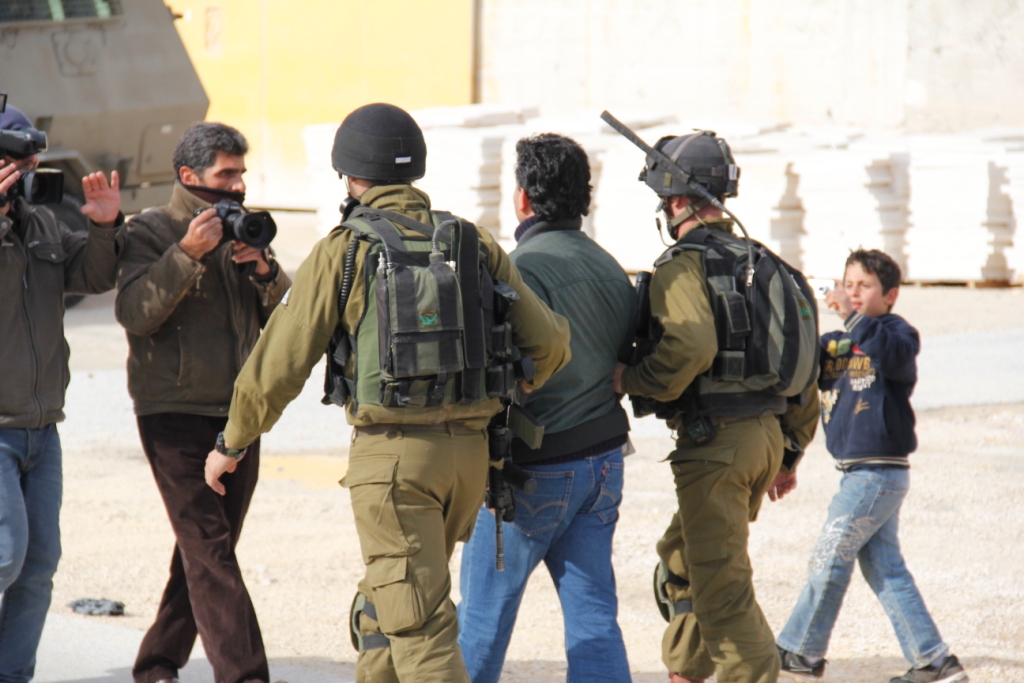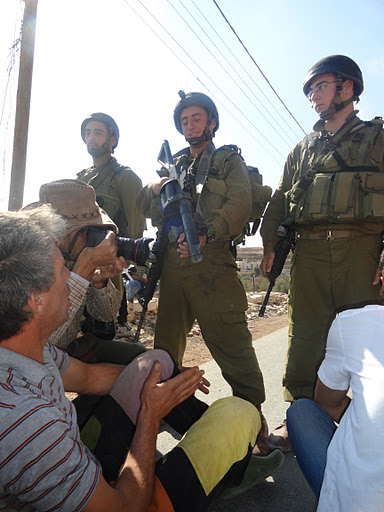Tag: Al Ma’asara
-
Israel to demolish two houses near Bethlehem
28 January 2012 | WAFA News Agency Israeli forces delivered home demolition notices to two Palestinian homeowners in al-Ma’sara, a village south of Bethlehem, under the pretext that they were built without a permit in an area under full Israel control, said head of the village council Samir Zawahra on Saturday. He said Israeli soldiers…
-
Al Ma’asara refuses the road to illegal settlement activity
10 December 2011 | International Solidarity Movement, West Bank This weeks’ demonstration in the village of Al-Maasara was attended by approximately forty peaceful protesters with twenty Palestinians and twenty internationals. As always during the protests in Al Ma’asara the protesters were confronted by a line of Israeli soldiers who refused to allow the Palestinians cross an…
-
New Israeli military tactic: Headbutting in Al- Ma’asara
by Alistair George 28 October 2011 | International Solidarity Movement, West Bank The Israeli military violently obstructed a peaceful demonstration against the Israeli separation wall in Al-Ma’sara, near Bethlehem, today. Around 25 Palestinians and a similar number of international observers marched from the village at 12:20 PM today and attempted to reach olive groves on…


